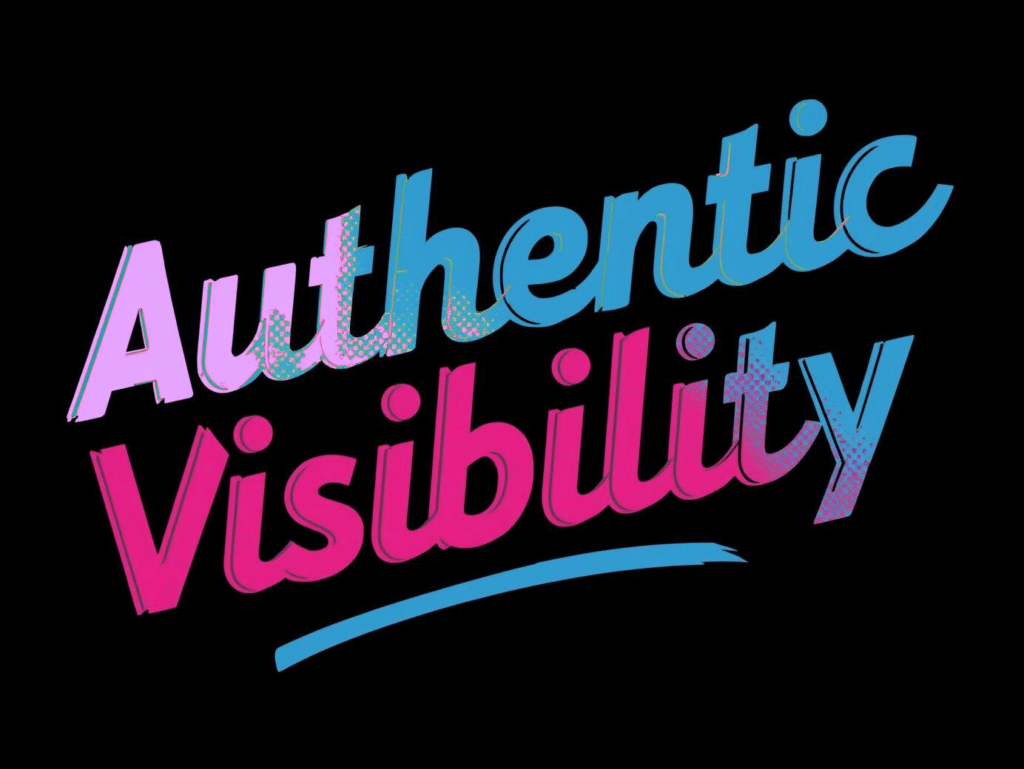Through coaching autistic women in leadership, Empauher has seen how visibility, communication, and confidence are often shaped by workplace cultures that misunderstand difference.
Through coaching autistic women in leadership, Empauher has seen how visibility, communication, and confidence are often shaped by workplace cultures that misunderstand difference. This reflection explores the unique challenges autistic women face in leadership roles — and how coaching can help them reclaim visibility, purpose, and self-trust in environments that often undervalue their strengths.
“Leadership visibility isn’t performance, it’s presence.”
For many autistic women in leadership, visibility is a complex terrain.
They are often high-achieving, deeply committed professionals who bring creativity, structure, and integrity to their work — yet find themselves overlooked or misunderstood. Despite strong performance, they are frequently excluded from informal communication networks or offered little meaningful feedback.
In coaching sessions, common themes emerge:
- Feeling unseen or misinterpreted by peers and managers.
- Being perceived as “too direct,” “too quiet,” or “too intense.”
- Struggling to self-advocate in cultures that reward constant social visibility over quiet consistency.
These experiences create a tension between doing exceptional work and being recognised for it. Many describe feeling isolated — not because they lack competence or connection, but because their natural communication and leadership styles don’t align with the unspoken norms of the workplace.

The “Alley of Visibility”
Empauher uses the metaphor of an alley of visibility to describe how autistic women can navigate professional recognition. Visibility doesn’t have to mean performing or self-promoting. Instead, it can be about walking one’s path with authenticity and clarity.
Coaching helps clients identify what visibility looks like for them — and how to express their leadership in ways that feel sustainable and genuine.
Key strategies include:
- Reframing assertiveness as clarity, not confrontation.
- Communicating proactively rather than waiting to be invited in.
- Seeking clarification as an act of collaboration, not self-doubt.
When autistic women start to lead from self-understanding rather than self-correction, they often discover that their presence becomes more impactful, not less.
Breaking free from micromanagement
Many clients describe working under rigid or autocratic management styles that leave little room for creativity or autonomy. These environments can be particularly draining for autistic leaders who thrive on structure but value trust, flexibility, and mutual respect.
Micromanagement often sends an unspoken message: you still have to prove yourself.
This mindset not only wastes talent but reinforces a culture of compliance over innovation.
Through coaching, Empauher supports clients in developing a coaching-based leadership style of their own — one that values empowerment, empathy, and psychological safety. By shifting from control to curiosity, they create spaces where collaboration can replace hierarchy and trust can replace constant evaluation.
From firefighting to foresight
A recurring theme among Empauher’s clients is the feeling of firefighting — constantly responding to crises or filling communication gaps rather than being supported to plan strategically.
Autistic women often describe “improvising daily,” adapting to neurotypical expectations, and suppressing their own needs to maintain harmony. Over time, this reactive cycle leads to exhaustion and burnout.
Through coaching, they learn to step back, reflect, and rebuild clarity. Together, they examine what’s working, what’s draining, and what can be delegated. The process moves them from firefighting to foresight — from survival mode to sustainable leadership.
Final reflection
The stories of autistic women in leadership highlight a powerful truth: visibility isn’t about standing under the spotlight — it’s about being seen as you are.
When these women embrace their authentic ways of thinking, leading, and communicating, they not only transform their own confidence but also influence the cultures around them.
Coaching provides a space where leadership becomes less about constant proving, and more about presence — where difference isn’t hidden, but harnessed.
Because true leadership doesn’t mean performing louder. It means leading with clarity, empathy, and courage — exactly the way many autistic women already do.

Connect, Reflect, and Reclaim Your Space
If you’re a neurodivergent or autistic woman in leadership, you don’t have to navigate this alone.
Schedule a free chemestry call with Empauher to share your story, explore your challenges, and find your community, a space where your leadership style is understood and celebrated.
And if you’re ready to go deeper, join us for the Empauher Retreat — Unmasking Authentically, a 3-night immersive coaching retreat designed for neurodivergent and LGBTQIA+ professionals who are ready to lead from authenticity, not exhaustion.
📍 Location: St Blane’s House, Kilchattan Bay, Isle of Bute, Scotland
🗓️ Length: 3 nights / 3 days
✨ Focus: Coaching, connection, and creative self-expression in a neuroinclusive space
Find out more and reserve your place:
👉 Empauher Retreat — Unmasking Authentically
Explore how Empauher Coaching supports autistic women leaders to embrace authentic visibility, overcome workplace bias, and lead with clarity and confidence. Discover tools to move from performance to presence — and learn more about the Empauher Retreat.
#Empauher #NeurodivergentLeadership #AutisticWomenInLeadership #AuthenticVisibility #Neuroinclusion #LeadershipDevelopment #NeurodiversityAtWork #WomenInLeadership #EmpauherRetreat #UnmaskingAuthentically #LeadershipCoaching #AutismAcceptance #InclusiveLeadership #EmpauherCoaching #SelfTrust #NeurodivergentProfession
